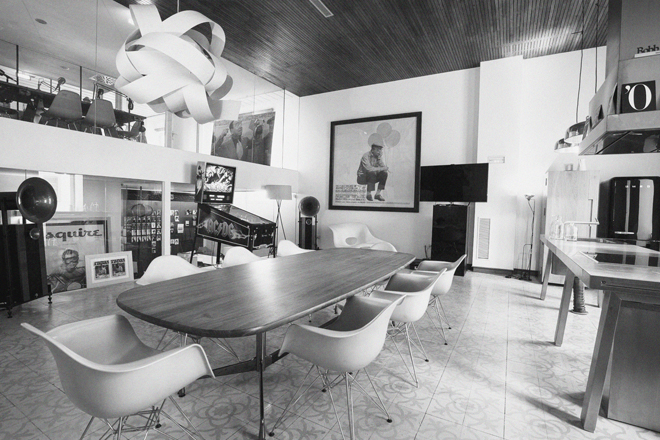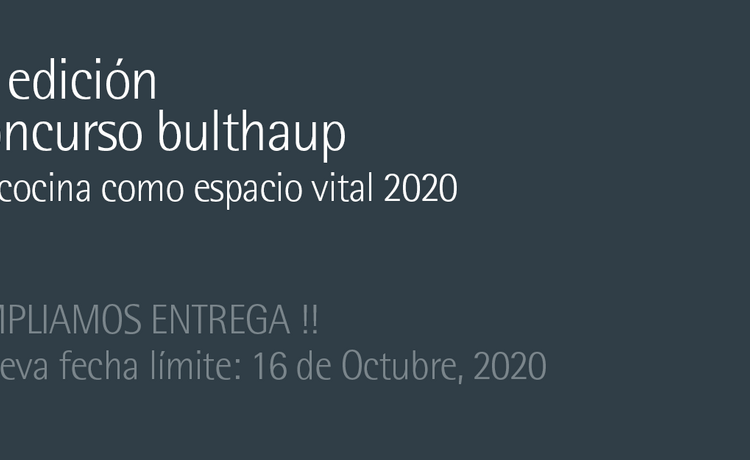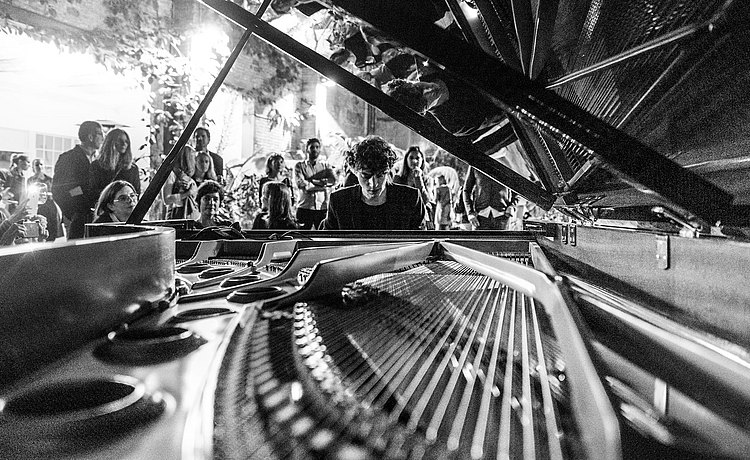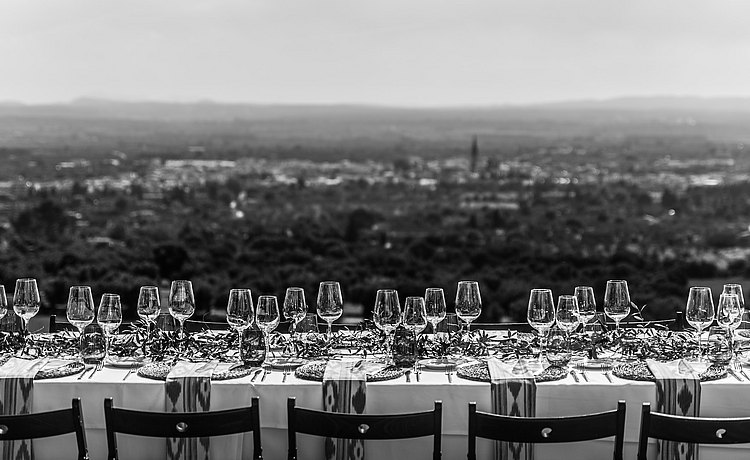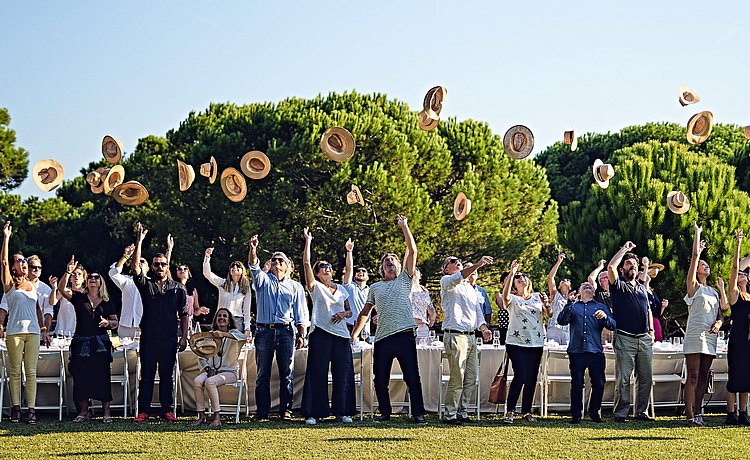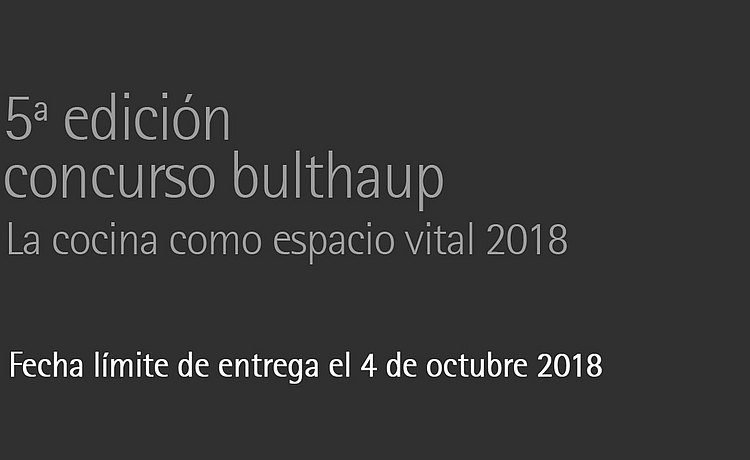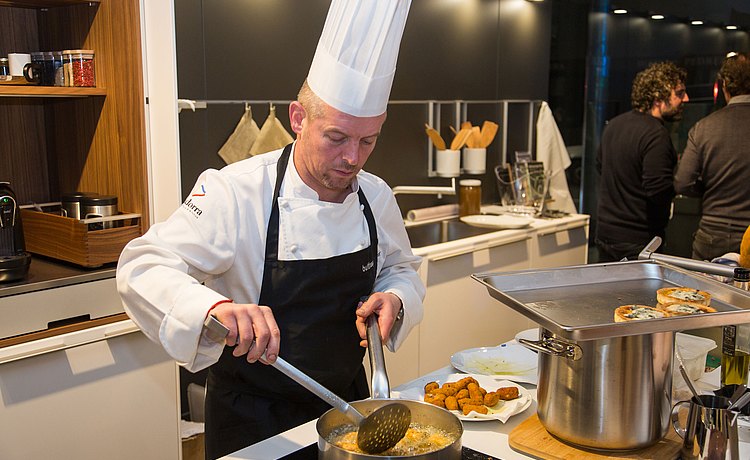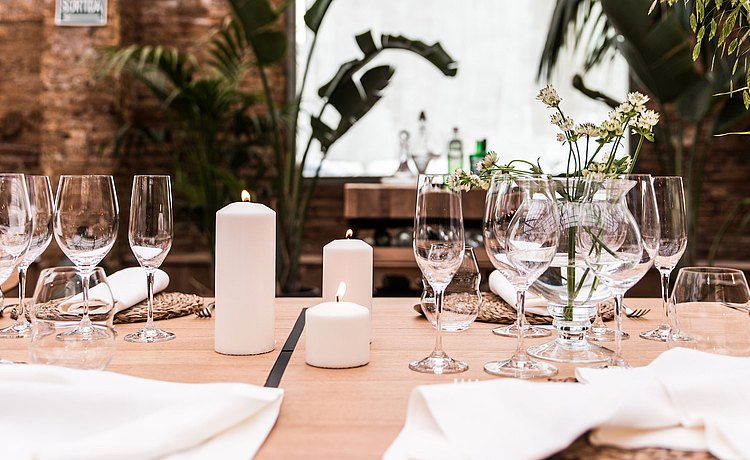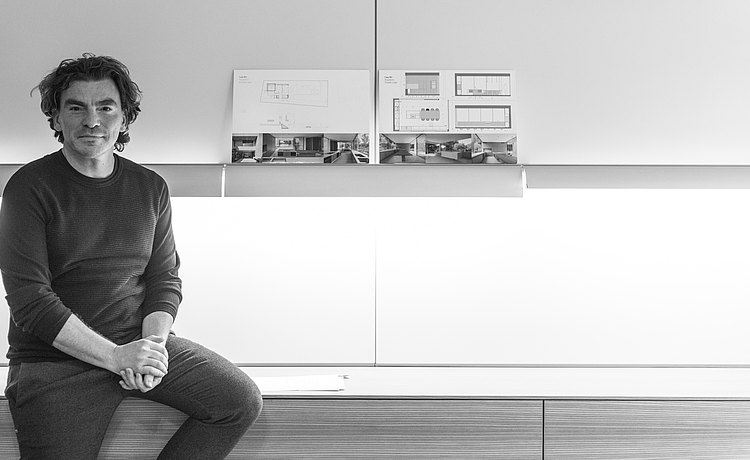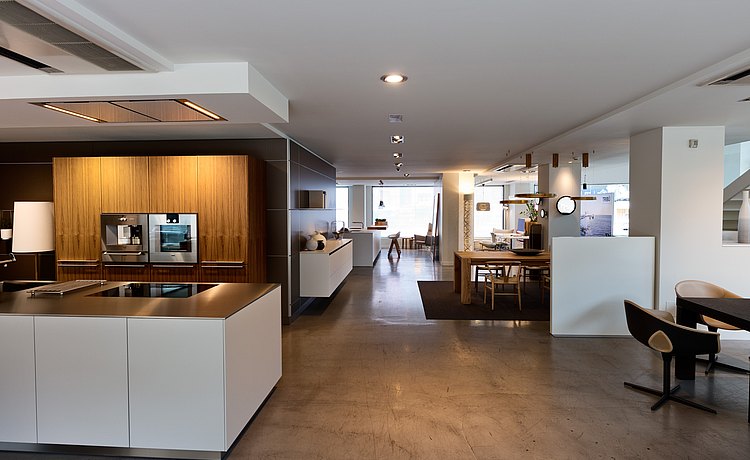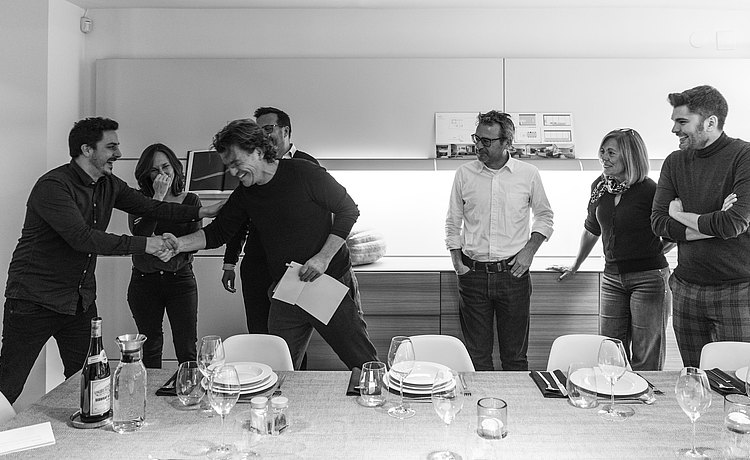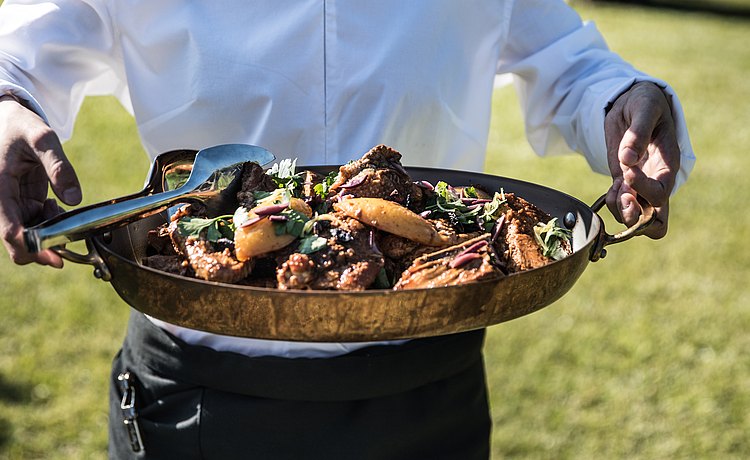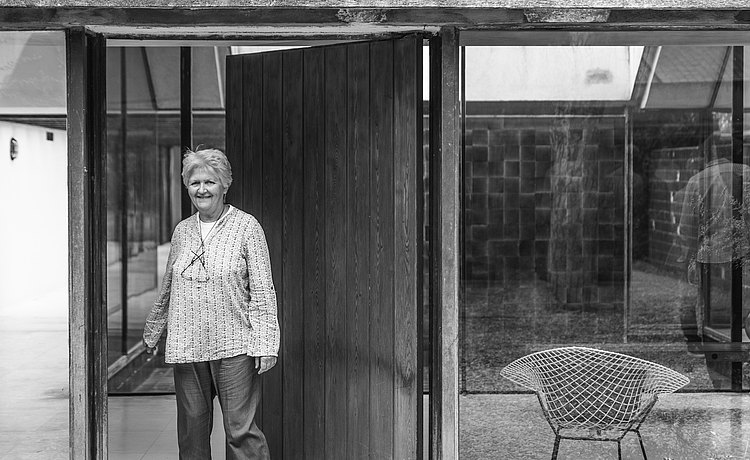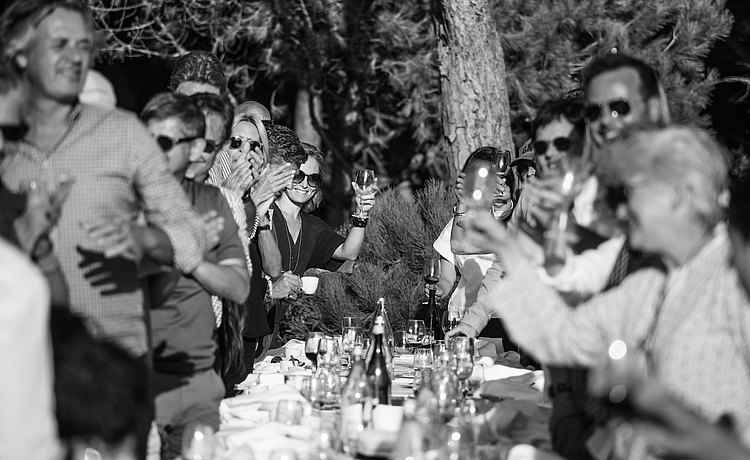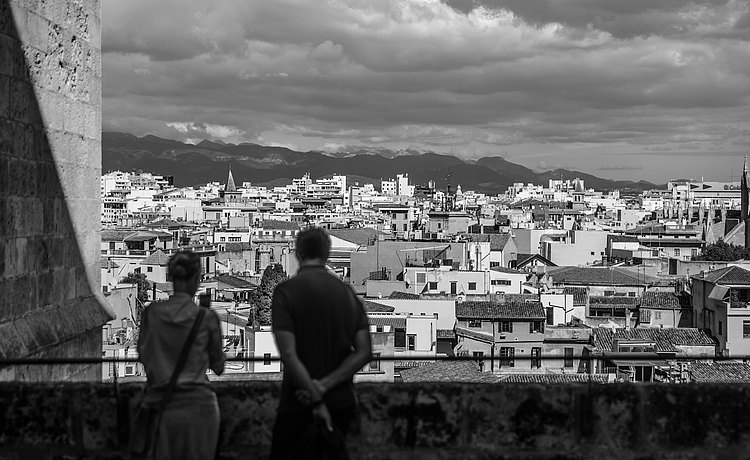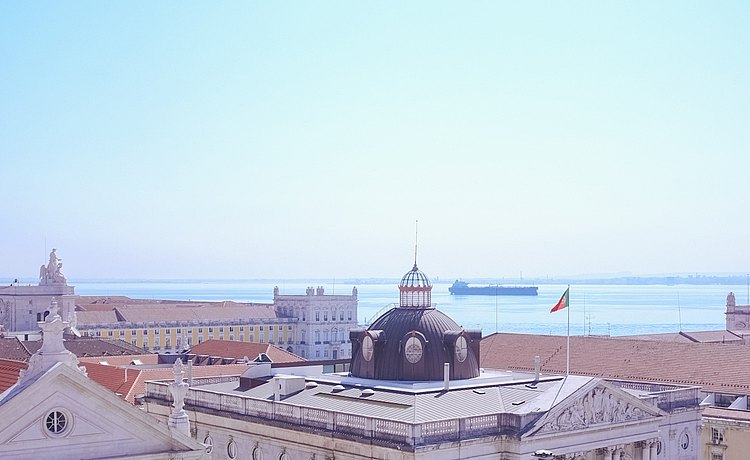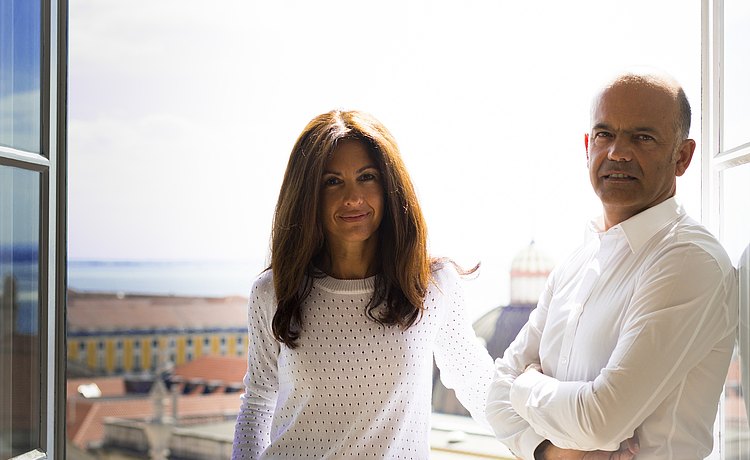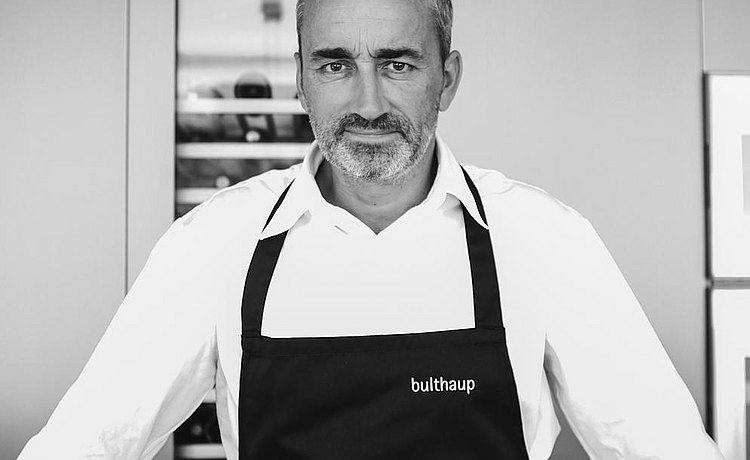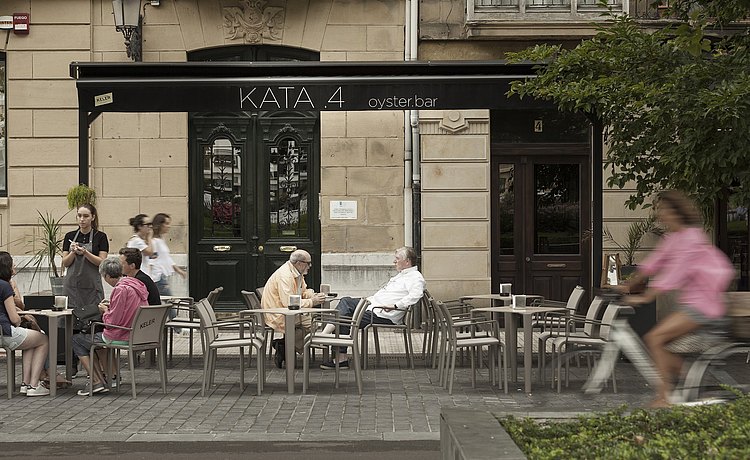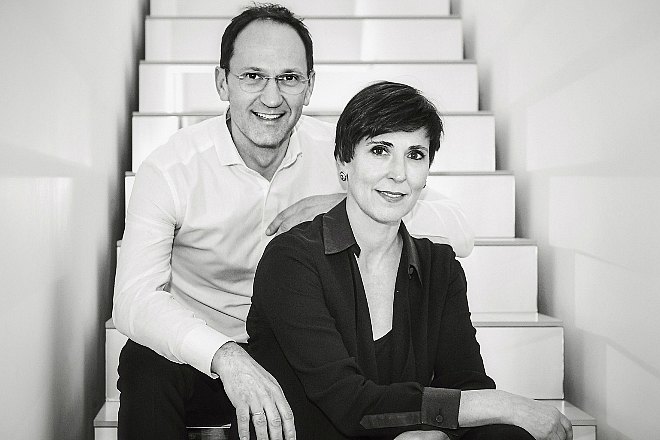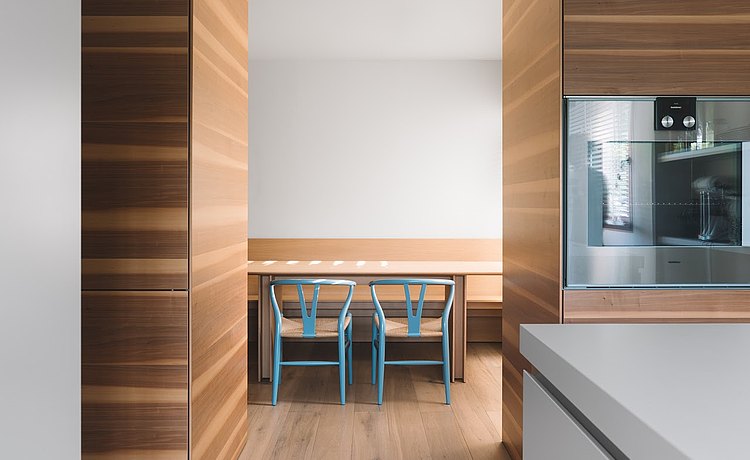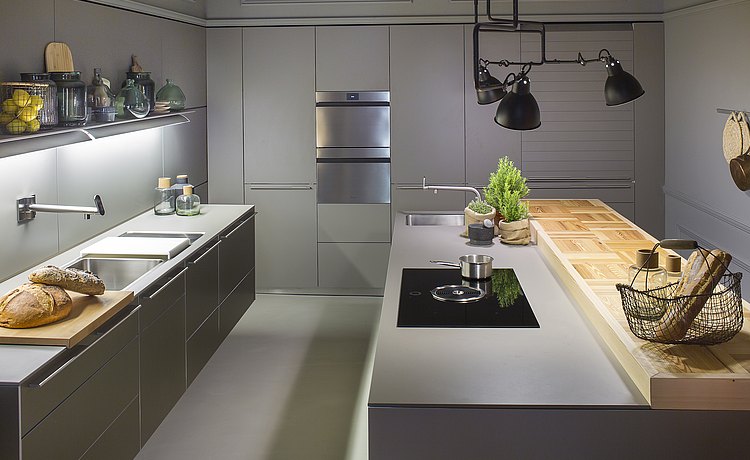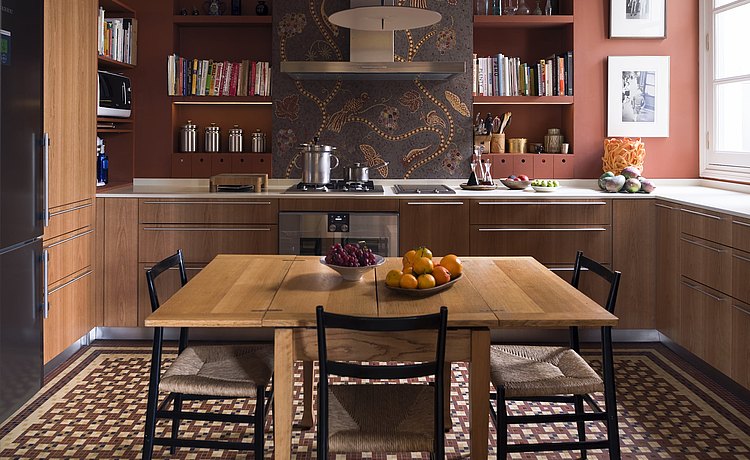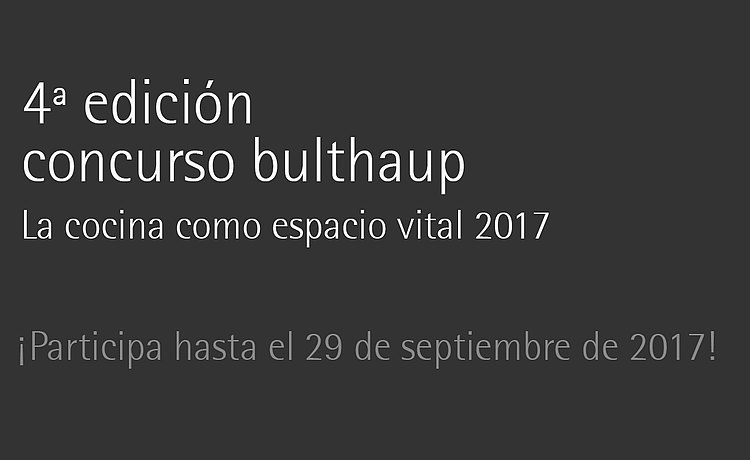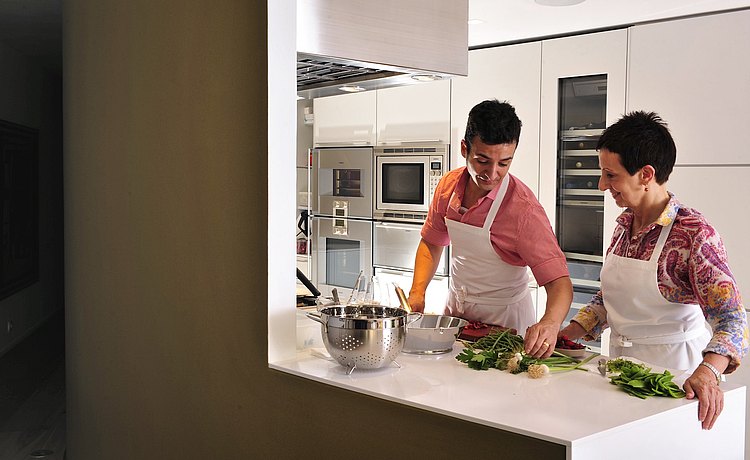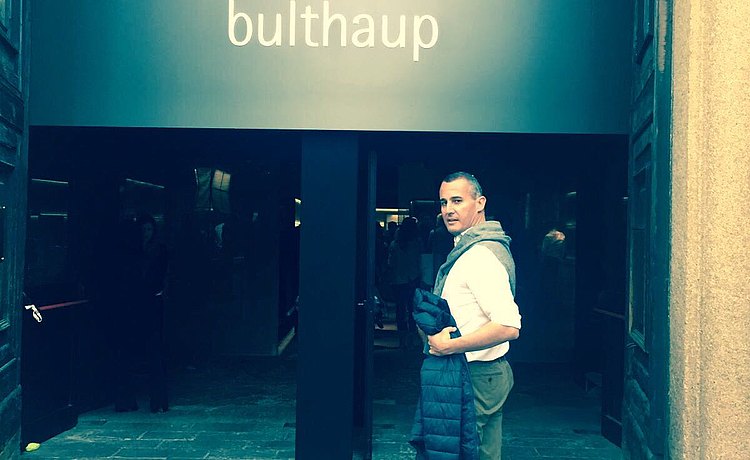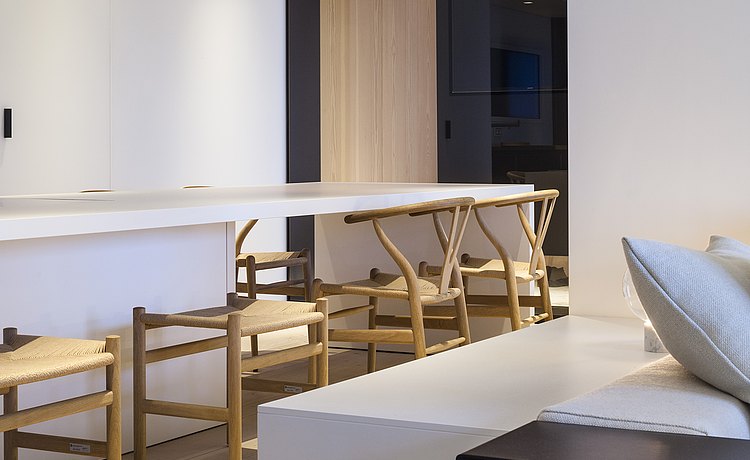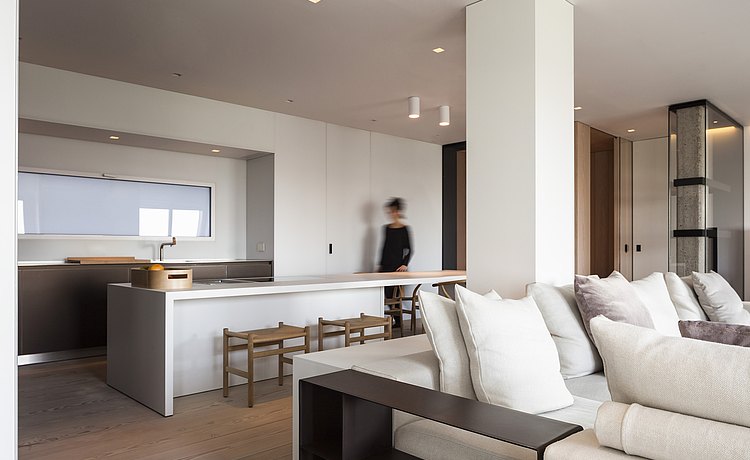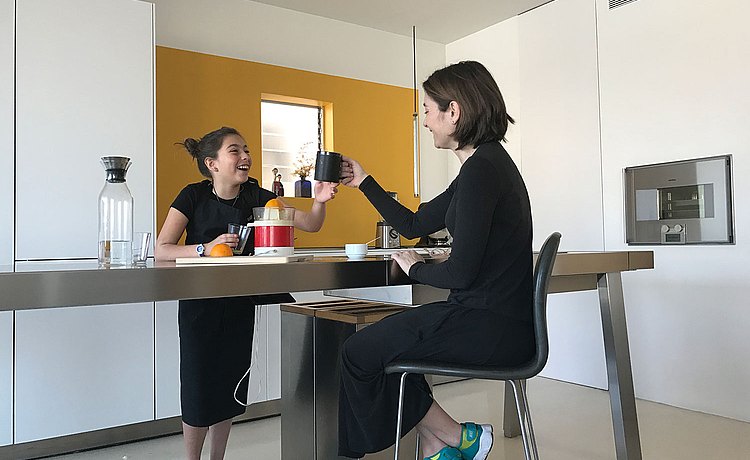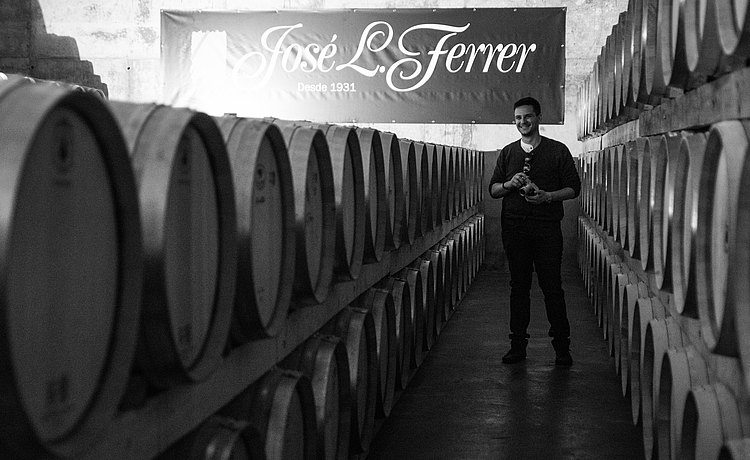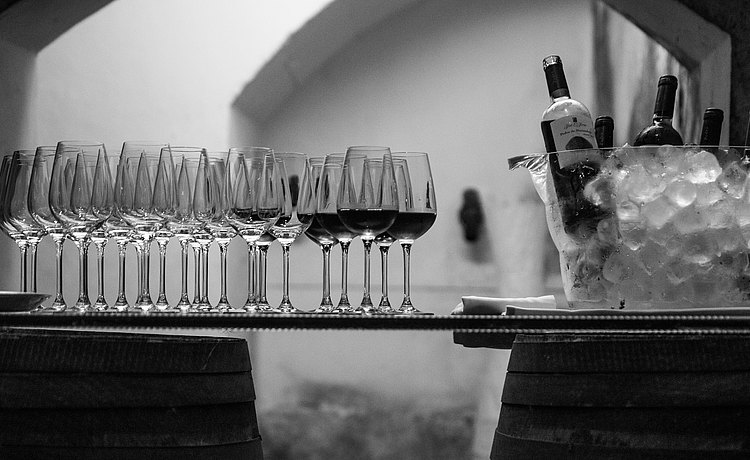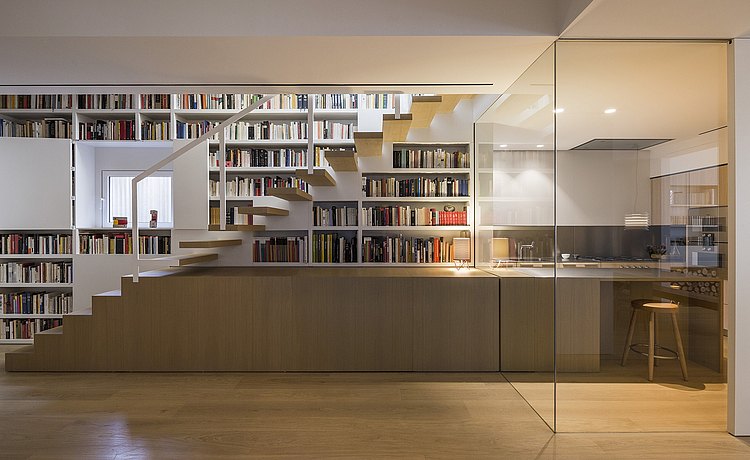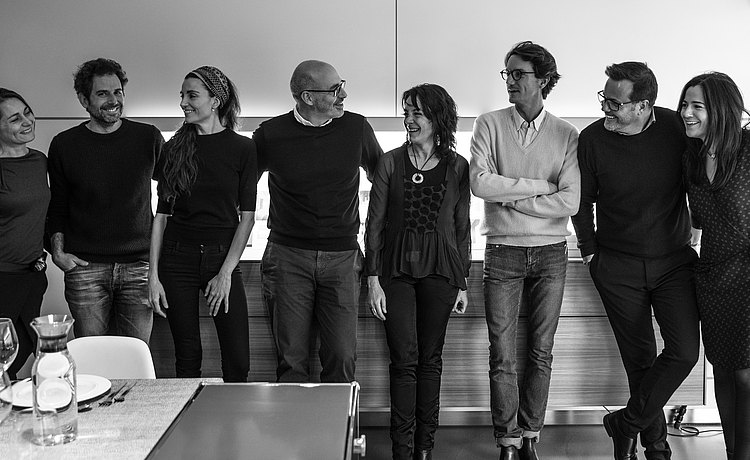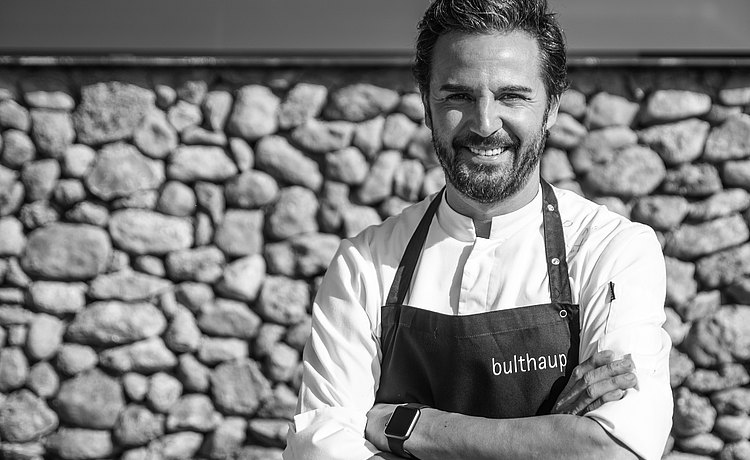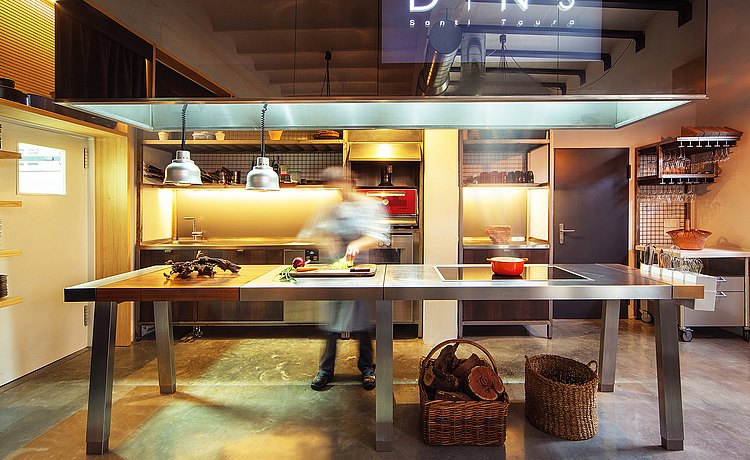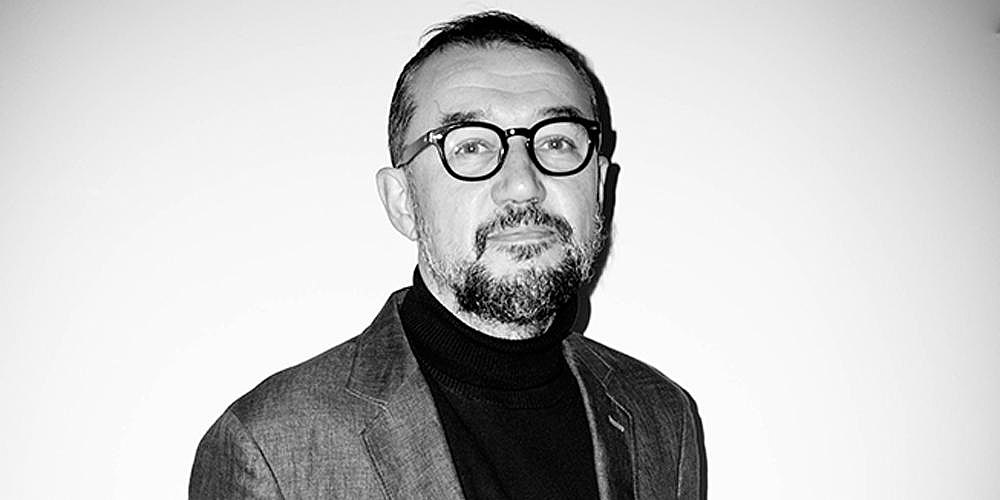
Andrés Rodriguez, who has been working in journalism for the past thirty years, participated in creating El Independiente and El Sol; he was editor-in-chief of the Spanish edition of Rolling Stone magazine and managing editor for magazines at Grupo Prisa, where he spent 16 years of his professional life. In 2007 he decided to start up his own venture: Spainmedia, a publishing group that not only succeeded in overcoming the economic crisis, but has ended up producing Forbes, Esquire, Robb Report, L’Officiel, T (The New York Times style magazine) and, since 2015, his most personal project: Tapas.
Where did your passion for journalism come from?
Would you say it was your vocation?
I’m a journalist by vocation; I’m deeply in love with my profession. I’ve been working in this field for over thirty years and almost everything that makes me who I am—aside from my family background—I owe to this profession. I hope to keep on enjoying it for another thirty years.
Do you remember whether there was a specific moment when you identified your passion? Please tell us when it was and how you developed it from that point on.
I believe communication is a gift that you’re born with, and, if I may say so myself, I think I was fortunate enough to have it. I like to connect with people and I think I was aware of it from an early age. Even though it may seem contradictory, I’m also very shy and private. Since I first decided to become a journalist, I’ve traveled a long path of self-teaching, which began at the university and then continued as I learned from the masters of the trade, the ones who keep the best of our tradition alive.
We have read that you were fascinated by magazines and newsstands from an early age. What did they mean to you? Where do you identify the first signs of that passion in your childhood? How did you make the transition from reader to journalist?
For me, newsstands have been and continue to be full of life. I remember getting home late because I had stopped by to see what was on display, buy single cigarettes, discover forbidden magazines, chat with the vendor. Even today the people who work in newsstands are my friends. I talk with them, ask them to place my magazines in prominent positions, tell them what those magazines are about and admire everything these people do to keep their businesses alive. It was thanks to them that I first became a reader. I still remember how shocked I was by the first issues of Vibraciones magazine I came across (totally unrelated to porn, may I add), of which I understood practically nothing; those double-spread, newspaper-size posters of El Gran Musical (years later, as fate would have it, I ended up being that magazine’s last editor); the copies of Hola magazine at my grandmother’s house and the news about the mysterious Bélmez Faces on the cover of the evening paper Pueblo.
What do you you think it takes to achieve excellence in this area of publishing?
To be a good magazine editor—and I hope to be the best someday—you have to be committed to the product, stop thinking about the bottom line when you have to, not fall into the trap of vanity, and pursue your goals tenaciously. Last but not least, you’ve got to have the urge to change your society, to make a contribution to your industry, without resting on your laurels. And you also need a little bit of luck and excellent health.
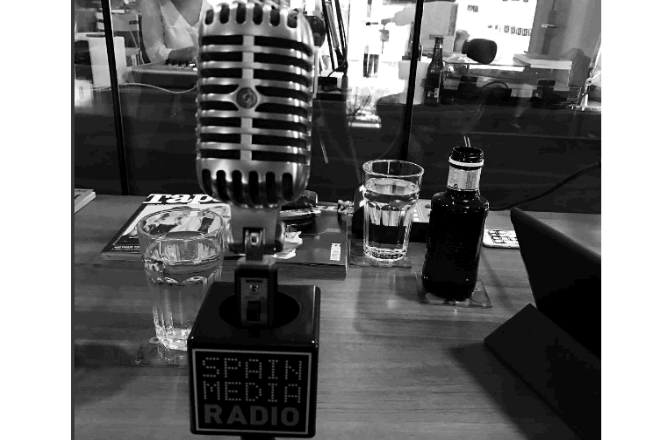
In addition to this passion, were you tempted by any other interests?
I’m interested in everything. A journalist has to experience everything intensely. I love photography, film, literature, gardening, motorcycles, sailing, gastronomy… life is so amazing that I don’t find the time to learn all I’d like to. Publishing is a team effort. What have the collaborations and relationships it entails been like for you? Fortunately, I have been able to select and hire my own staff. It’s now been ten years since I founded Spainmedia, and since it started up we have become the talent pool for the industry. We have had people on our staff who have learned the trade here and now are extremely successful at other magazines and publishers, some of which are actually competitors. I try to always have the best staff at Spainmedia.
What people in publishing or other areas have left their mark on your career?
I’ve learned a lot from Milton Glaser and George Lois. And also from Jan Wenner, the co-founder and publisher of Rolling Stone magazine. In Spain, I truly admire Toni Segarra, Fernando Gutiérrez and my colleague Alberto Anaut.
What was it that drove you and your brother to start up your own business? Tell us about the beginning of Spainmedia.
One day I closed my eyes and said to myself: what do you want to make sure you do before you die? And in two seconds I answered (in silence), “be a publisher!” I talked with Carlos and he said he was on board. Without his efforts and sacrifices, Spainmedia wouldn’t be positioned in the industry the way it is now.
What was your aim when you stopped working for other companies and started up your own publishing venture?
I was seeking more freedom. I continue to do so now. I wanted to be free to put my own ideas to the test without someone else having the last word. I wanted to be able to make my own mistakes and have the luxury of correcting them. And I wanted, as I still want now, to keep on learning every day.
What has your experience been in terms of the relationship between business and journalism?
For the past ten years I’ve been running my own business. I’ve been a publisher who puts his money on the line to publish magazines, books, and websites. In the course of my career, I have brought the best brands to Spain: Rolling Stone, Esquire, Harper´s Bazaar, The New York Times, Forbes, and Robb Report; I also created Tapas. And I have been able to do so thanks to the support of the best advertisers in the world, who have placed their trust in Spainmedia. Being an entrepreneur under these circumstances has been more of a luxury than a sacrifice.
How would you define your passion and your reason for choosing your profession?
Every day I go to work, I feel like a kid on his first day of school: nervous about seeing what the class and the other students are like, but thrilled.
In what ways do you identify with bulthaup’s values?
I truly admire Marc Eckert and bulthaup. I’m in awe of their excellence, their history, their future vision, their ability to reinvent themselves and their products. My company is only ten years old. I would love it if someday people could say of Spainmedia what is now being written about bulthaup. That’s why I decided to buy a bulthaup kitchen. And I really enjoy it. Given your connection with gastronomy and the associated industry, we assume that your choice of a bulthaup kitchen is no coincidence.
What benefits does it offer you?
This kitchen gives me a sense of peace and balance. Every week, I organize a Tapas-brand lunch in this kitchen and invite interesting people to exchange ideas.
Do you remember what it felt like the first time you used your bulthaup kitchen?
I definitely do. My first impression was that someone had thought of me. And not only that: plus, without my giving them any instructions, they had somehow gotten it just right, don’t ask me how.
